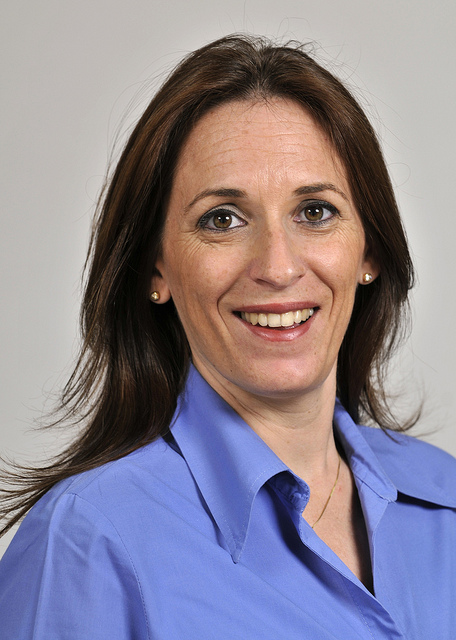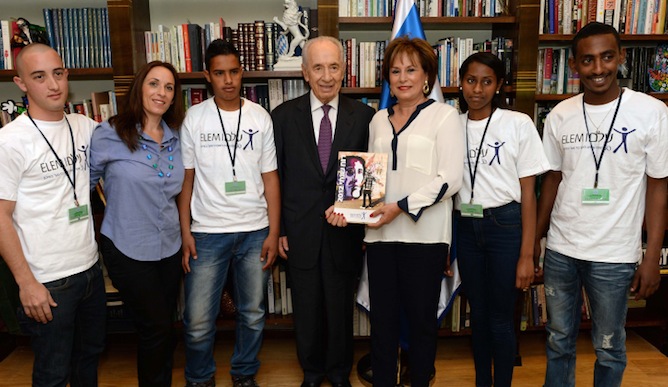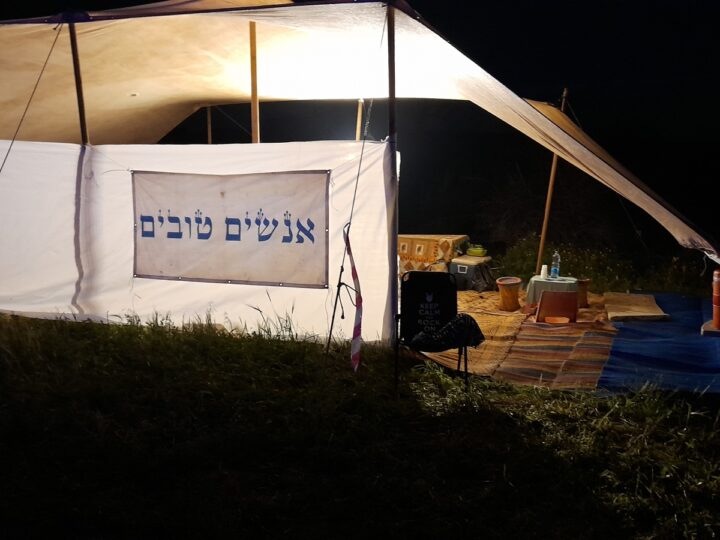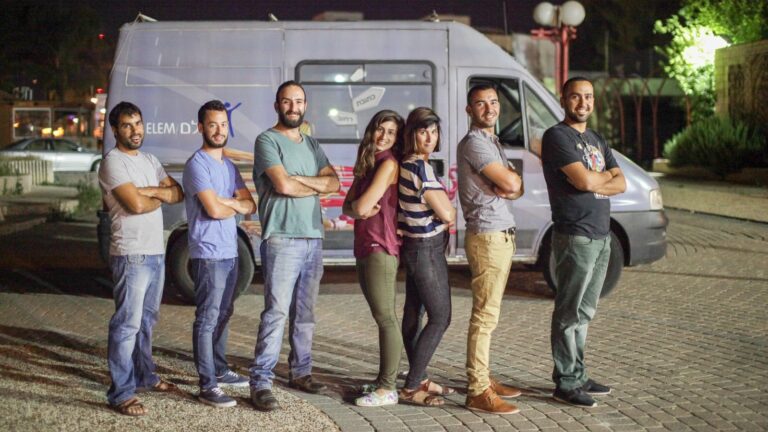For the first time in its more than 30-year history, the Israel-based organization ELEM-Youth in Distress participated in the General Assembly of the Jewish Federations of North America, which took place this year in Jerusalem. This was fitting, because among the other issues on which the gathering focused was Israeli society.
Since the condition of youth is crucial for determining where a society is headed, ELEM’s presence at the GA was as welcome as it was a potential boon for the organization’s fundraising activities. And much money is needed to sustain the many and varied projects that ELEM has established over the decades to tackle the ills afflicting a significant portion of the younger generation.
It all boils down to building what ELEM Executive Director Efrat Shaprut calls “social resilience.”
For a long time now, she tells ISRAEL21c at her office in Bnei Brak, “We have understood that military resilience is not the only important thing for Israeli preservation.”
Sadly, she says, “We have been seeing an increase in problems, particularly among the children of Ethiopian immigrants.” These problems include alcohol and drug abuse, as well as violent behavior.
Indeed, 40 percent of ELEM’s casework involves immigrants or their children. “Crises connected to immigration sometimes take generations to overcome,” she says.
A multicultural approach
In the past, the Israeli government’s philosophy and policy was to turn the fledgling Jewish state into a perfectly blended melting pot of Jews from all over the world. Programs were geared toward erasing an immigrant’s culture of origin to create a new, specifically Israeli culture.
ELEM takes a far more multicultural view.
“The children of immigrants in general and Ethiopians in particular suffer from being caught in the middle of two cultures and belonging to neither,” says Shaprut, a lawyer by training who has worked in different capacities at ELEM for 13 years, the last four as its executive director.

- Executive Director Efrat Shaprut.
“On the one hand, they no longer connect with the traditions of their parents, culturally or religiously – which includes respect for parental authority — and on the other, they aren’t really part of the surrounding Israeli culture either. This places them in a closed sub-culture that is very angry, hurt and isolated. Nobody understands them.”
ELEM aims to reconnect them with their parents and their historical roots. “Once a young person begins to respect his parents, he has already been given half of the backing that enables him to cope with difficulty. This is one of the best tools for rehabilitation.”
Among ELEM’s network of professional and volunteer staff are people who speak the language, both literally and figuratively, of the target sectors.
For example, Dr. Simcha Getahune, who heads the Migdalor (“Lighthouse”) centers — which provide afternoon leisure activities, such as music, photography and horseback riding – is herself an immigrant from Ethiopia. In fact, 30 percent of ELEM’s employees are of Ethiopian descent. Many of them received help from ELEM in their youth, then grew up to become social workers and returned to work as professionals or volunteers.
Today, ELEM has 270 employees, 150 of them full time, plus another 1,700 volunteers. Shaprut stresses the significance of the latter, who “make us a very large and active organization, able to work six days a week, rain or shine; and also serve as a network of responsible adults for the kids, mentoring them, offering them a shoulder to cry on or a helping hand – without being judgmental.”
Finding kids in ‘invisible’ places
One element central to ELEM’s endeavor is outreach. With a fleet of 15 vans, the organization covers 50 communities throughout the country, from Kiryat Shemona in the north to Eilat in the south, reaching 20,000 young people per year.
“We need to be proactive in locating these kids,” she says. “And we try to focus on the most ‘invisible’ places: the forgotten neighborhoods, the streets at night and areas where the homeless wander.”
One example is Zion Square in Jerusalem, where, in addition to drug- and alcohol-related teen violence, there is also a growing problem with teens from the United States and other English-speaking countries, sent to Israel to study for a year. Some of these kids end up dropping out and living on their own, unsupervised.
Another target, slated for 2014, is haredi (ultra-Orthodox) youth – some of whom have been ostracized in their community for questioning their religious practices.
These outreach vans, as in most of ELEM’s projects, are manned by a trained team of volunteers, led by one or two professional employees. Once a team is in place, it remains constant, so that the kids get to know them personally and cultivate bonds of trust.
Shaprut describes the outreach process: “First we ‘court’ them. Initially, some are suspicious, because they are used to people approaching them with ill motives, such as drug dealers and pimps. It does not take long for them to realize that we are there to be good to them, which causes their suspicions to evaporate. They see that we are a stable and constant presence. No matter what, we arrive at certain hours of certain days in each neighborhood. The kids know when we’re coming, and they’ve learned to expect us.”
Team members speak to the kids as equals. “We don’t tell them what is right for them, which so many others have done in their lives. Instead, we try to provide them with alternatives. And once they choose, we’re there to help. Someone wants to learn cosmetics? We’re there to help through the process. Someone needs accompanying to a court hearing? We’re there. Sometimes we just give someone a cup of coffee and a hug, if that’s what they want, and then, after another meeting and another, they might ask for concrete help – for a to-do list.”
Being, then doing
“First there’s ‘being,’ and then there’s ‘doing,’” Shaprut says.
“Doing” might involve helping a kid register for a course, enter drug rehab or find a job. “We sew each individual a different suit,” she says.
All of this costs a lot of money. ELEM’s annual budget is NIS 33 million, and another NIS 12 million in volunteer hours. Half of this comes from governmental institutions, such as National Insurance and the Welfare and Absorption ministries. The other half derives from donations in Israel and abroad.
ELEM was actually established in the United States, jump-started by members of the New York Jewish community (chief among them Ann Bialkin, who serves as chairman of ELEM America to this day), in conjunction with Israeli experts in the fields of law and social work. It is has thus been a joint Israeli-American venture from its inception in 1982.
“Helping young people become engaged members of society, rather than alienated from it,” concludes Shaprut, is not only ELEM’s aim. “It is an ongoing success story, thanks to the dedication of the many people and organizations whose faith and contributions continue to make it possible.”
For further information, see http://en.elem.org.il/.















